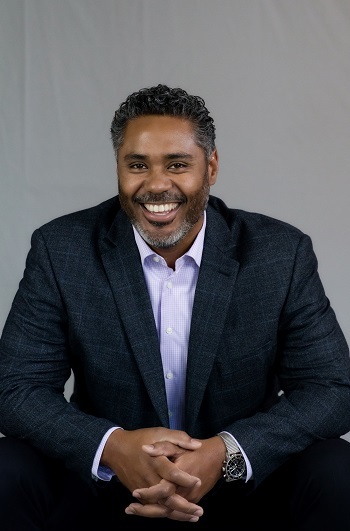Adam Robinson's Blog, page 17
May 19, 2017
Paid Parental Leave and Why You Need It
Building the best team starts with attracting top talent, and in a competitive market, you need to offer benefits that differentiate your business. Providing paid parental leave will put you miles ahead of your competition. Consider the following statistics:
Only 14% of US workers have access to paid family leave
Nine percent of workers at organizations with less than 100 employees have access to paid family leave
Eighty-six percent of US employers do not offer paid paternity leave
Offering paid family leave becomes even more critical as Millennials, now the largest working demographic, begin having children. Here are some of the benefits of paid family leave:
Employer Brand Differentiator – Millennials want work-life balance and in less than a decade, millennials will make up 75% of the workforce. By providing paid family leave, you’ll show that you care about employees, their families, and a healthy work-life balance. And in the end, you’ll drive better quality applicants to your open roles.
Lower Turnover – Mothers who take paid family leave are more likely to return to work than those who do not.
More Productivity – Employees who take paid parental leave are more likely to work 15 to 20 percent more in the second year of their child’s life than those who do not.
Happier Employees – If parents are able to spend time with family and make the transition to work after a life changing event, they come back happier and more engaged.
At Hireology, we care about our employees and their families, and as our company has grown, our family leave policy has, too. Previously, our benefit was twelve weeks’ paid primary caregiver leave and two weeks’ paid non-primary caregiver leave. We recently announced that we are expanding our policy to offer four weeks paid leave for non-primary caregivers and changing the requirement from one-year tenure to 150 days.
Companies like Starbucks, Nordstrom, IKEA and others have also recently expanded their parental leave policies. You may be thinking, “yeah, all that is great, but my small business can’t handle the expense of paid family leave policies.” I’d like to respectfully challenge that notion.
California mandated paid family leave about ten years ago, and according to this study by the Center for Economic and Policy Research, 87% of employers say that the policy has not increased costs. Furthermore, nine percent say paid family leave has actually reduced costs, especially those affiliated with turnover and training.
There are many ways to make paid family leave part of your benefits package, and I believe it’s possible to find a policy that works for your business and your employees.
Here are a few low-cost ways you can offer paid family leave:
Work with a short-term disability insurance provider. This insurance policy covers you in a wide range of leave situations that are out of your control.
On top of your typical vacation policy and sick leave policy, offer as many weeks as you believe you can afford for paid family leave – even if it’s two weeks, that’s more than the vast majority of employers.
Remember, this is a once or twice in a lifetime event that you’ll know about well ahead of time. You and the employee will have plenty of time to prepare for the time off. It’s possible to offer paid leave without having to cover the work by hiring someone temporarily, and if employees work together to cover certain duties, you’ll find that everyone manages well during the short-term leave.
Soon, paid family leave will be approaching obligatory for companies that want to attract the best talent. Be ahead of the curve: attract and retain the best employees today and consider the benefits of paid family leave for not just your employees, but for your company as well.
May 18, 2017
Do you consider yourself lucky?
Enjoy this compilation episode of entrepreneurs’ favorite interview questions featuring:
Kristi Zuhlke, CEO and Founder of KnowledgeHound
Clancy Ryan, CRO of Punchkick Interactive
Nathan Christensen, CEO of Mammoth HR
Sonny Balani, CEO of Balani Clothiers
Kayne Grau, CEO and Founder of Drivin
Jennifer Shoop, COO and Founder of Fizz
Landon Shoop, CEO and Founder of Fizz
Chris Campbell, CEO and Founder of Review Trackers
Jo Dickstein, Founder of Flowers for Dreams
Listen to this episode on iTunes, Google Play, and Stitcher.
May 16, 2017
Save time with this Telephone Interview Guide
The second step of the interviewing process should include a telephone interview. This critical step saves you time when you’re looking for the best person for the job, watch this quick video to learn more.
Click here to download the Select the Right Person Toolkit!
May 12, 2017
How Not to Fire Someone
After the dismissal of FBI Director James Comey this week, I thought I’d share some timely tips on how not to fire someone:
If you let someone go and it comes as a major shock to the employee, you’re doing it wrong. You should be letting employees know if they aren’t meeting expectations immediately. It doesn’t help you or the employee to let them believe they are doing a great job when they aren’t. Be sure to set clear, measurable goals with employees from the start, then it is clear to everyone if they aren’t meeting expectations.
It’s like a breakup: if you’re emailing someone to let them know you’re ending it, then you’re doing it wrong. As unpleasant as it is, you really do need to fire employees in-person.
If everyone in the company knows before the employee that they are getting fired, you’re doing it wrong. Let your employees go with dignity. Your team will respect you more for it.
May 11, 2017
The Best Team Wins Podcast Episode 28: Brian Goldsmith, Principal at Bain Capital Ventures
Brian Goldsmith, Principal at Bain Capital Ventures, is sharing HR trends he sees in the field and offers some sound advice for folks looking to grow their business.
Brian’s favorite interview question:
“What interview question haven’t I asked that I should have?”
Why?
Brian says this: “It answers a few things: can you be concise and compelling? Are you able to think on your feet?”
Listen to this episode on iTunes, Google Play, and Stitcher.
Show notes:
1:00 – Working as an operator onsite with one of BCV’s portfolio companies
3:18 – Brian breaks down venture capital (VC for short)
4:40 – Three indicators that show a company gets it:
Turnover (5:17)
Hire consistently and predictably (6:20)
Reference checks (7:12)
7:30- The merits of Glassdoor
8:23 – Private Equity vs. Venture Capital and when do you pass on an investment in venture capital?
11:27 – The best thing you can do is keep it simple, be flexible, and be transparent
13:28 – “I would have written you a shorter letter but I didn’t have time,” and how it relates to people systems
14:36 – You can build a great team and a great business if you’re open to remote work
16:58- The biggest blind spots in HR for companies looking for funding and portfolio companies
18:45 – When is best to hire a strategic HR leader?
19:40 – Managing up, board culture, and improving relationships with investors and advisors
21:41 – The transparency spectrum
22:57 – The difference between VC and Operator
24:30 – Brian’s book recommendation
May 9, 2017
Before the Interview Process
The best way to save yourself time when interviewing candidates is to start with a robust job application form.
Click here to download the toolkit.
Save Time Before the Interview Process
The best way to save yourself time when interviewing candidates is to start with a robust job application form.
Click here to download the toolkit.
May 4, 2017
The Best Team Wins Podcast Episode 27: Tafa Jefferson
Tafa Jefferson, CEO and Founder of Amada Senior Care, is featured on this episode of The Best Team Wins Podcast. Learn more about Tafa and Amada Senior Care by clicking here and listen to the episode below.
Listen to this episode on iTunes, Google Play, and Stitcher.
Show notes:
2:59 – How did Amada Senior Care get started?
5:45 – How are you growing your business? t’s all about retention
7:25 – What are you doing to build your brand?
9:05 – The evolution of an entrepreneur and a company
11:04- The importance of having great business partners
13:10 – The moment you think that you’ve arrived, that’s not healthy thinking.
13:58 – This reward is often more important than pay in the care giving industry
16:49 – Amada’s compensation philosophy
17:53 – Where did this philosophy come from?
19:05 – Employee feedback: creating a safe environment in the workplace is critical
22:10 – Amada’s core values and building an organization around them
26:19 – Tafa recommends The Talent Masters by Bill Conaty and Ram Charan
28:24 – Tackling the biggest issue for Amada Senior Care: the lack of workforce in the future and creative ways to recruit employees
May 3, 2017
Tafa Jefferson, Founder and CEO of Amada Senior Care
Tafa Jefferson started his first senior care company in 1998 after leaving the NFL’s Chicago Bears and later founded Amada Senior Care, formerly Amada Home Care, with Chad Fotheringham and Jeff Turner. Tafa is featured on this week’s episode of The Best Team Wins Podcast, learn more about Tafa and his company below!

What’s your name?
Tafa Jefferson
What’s your title?
Founder and CEO
What is the name of your company?
Amada Senior Care
In 100 words or less, describe what your company does.
Amada Senior Care is a private pay non-medical provider of care for seniors. We provide assistance and guidance for families who need to hire caregivers to care for parents whom may have had a temporary healthcare setback and need to recover at home, or seniors needing full time care in the privacy of home. Our company provides families with resources to seek care in-home or in some cases out of the home. Additionally, we provide guidance in locating assisted living communities and memory care communities if home is not the best solution for seniors to age in place. Lastly, we consult with families on how to utilize reimbursement sources like Long Term Care insurance (LTCi) to pay for care on an ongoing basis.
Where is the company based?
San Clemente, CA
When was the company founded?
Amada Senior Care, formerly Amada Home Care, was founded in 2007
How many employees do you have?
Several thousand employees across 90+ franchises
How can we find you and your company on social media?
Twitter | Facebook | LinkedIn | Youtube
Is your company bootstrapped, or have you raised equity financing (VCs, angels, etc)?
As of today we have no outside equity financing or VC funding. We have “Bootstrapped” the organization through what we believe to be the toughest part of our development. Initiating, seeding and proofing the concept is a very difficult task to endure as a franchisor. We were able to accomplish that with great validation from our franchisees.
What company accomplishment or milestone in the past 12 months are you most proud of?
Entrepreneur Magazine ranked Amada Senior Care #5 new franchise concept in the United States.
What’s the #1 company issue or area of focus for you right now?
Caregiver shortages and the challenges of serving a sector poised for unprecedented growth.
Press:
Ranked #5 on Entrepreneur Magazines Top 100 New Companies
Ranked #135 on Entrepreneurs 2017 Franchise 500



